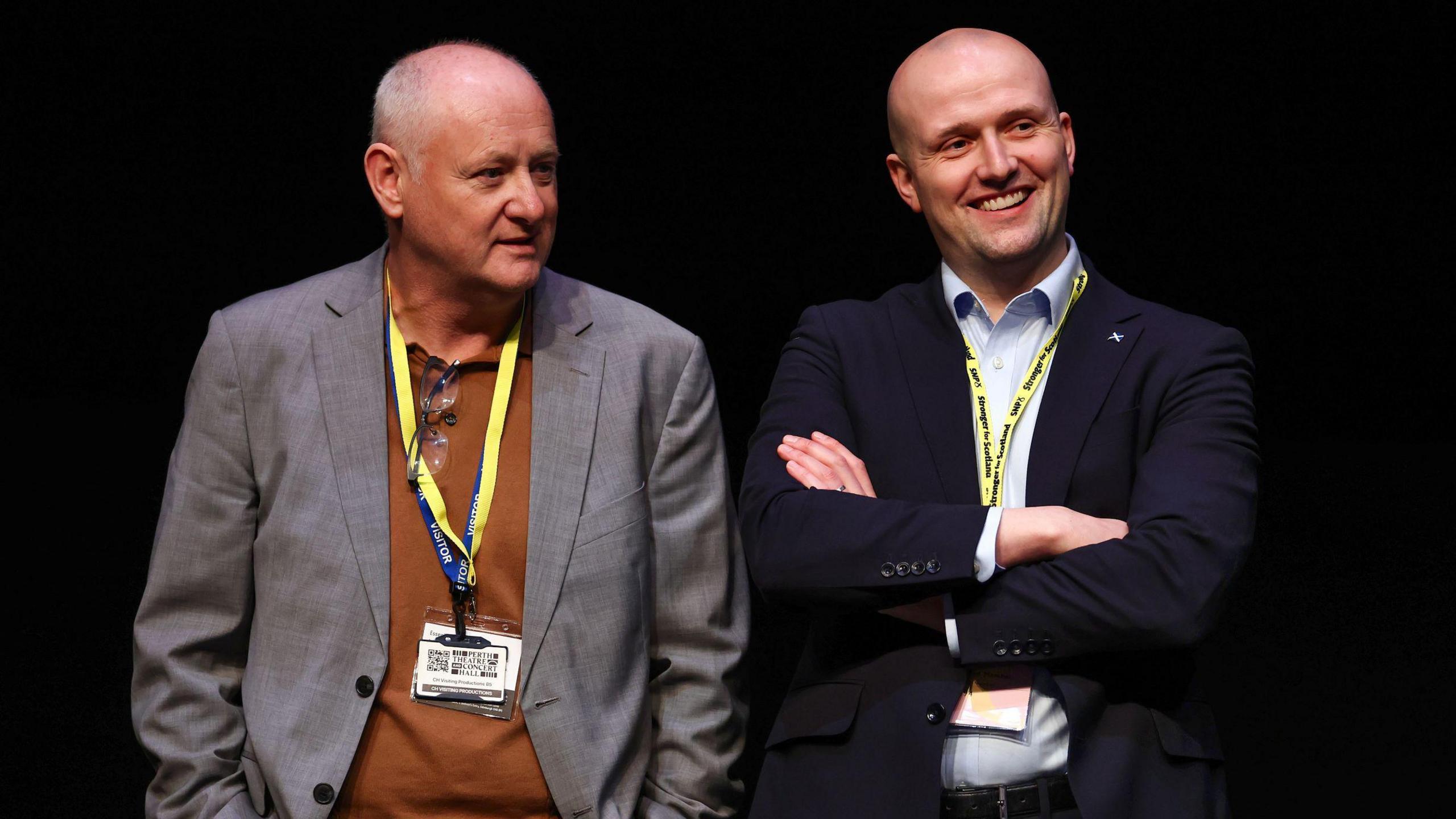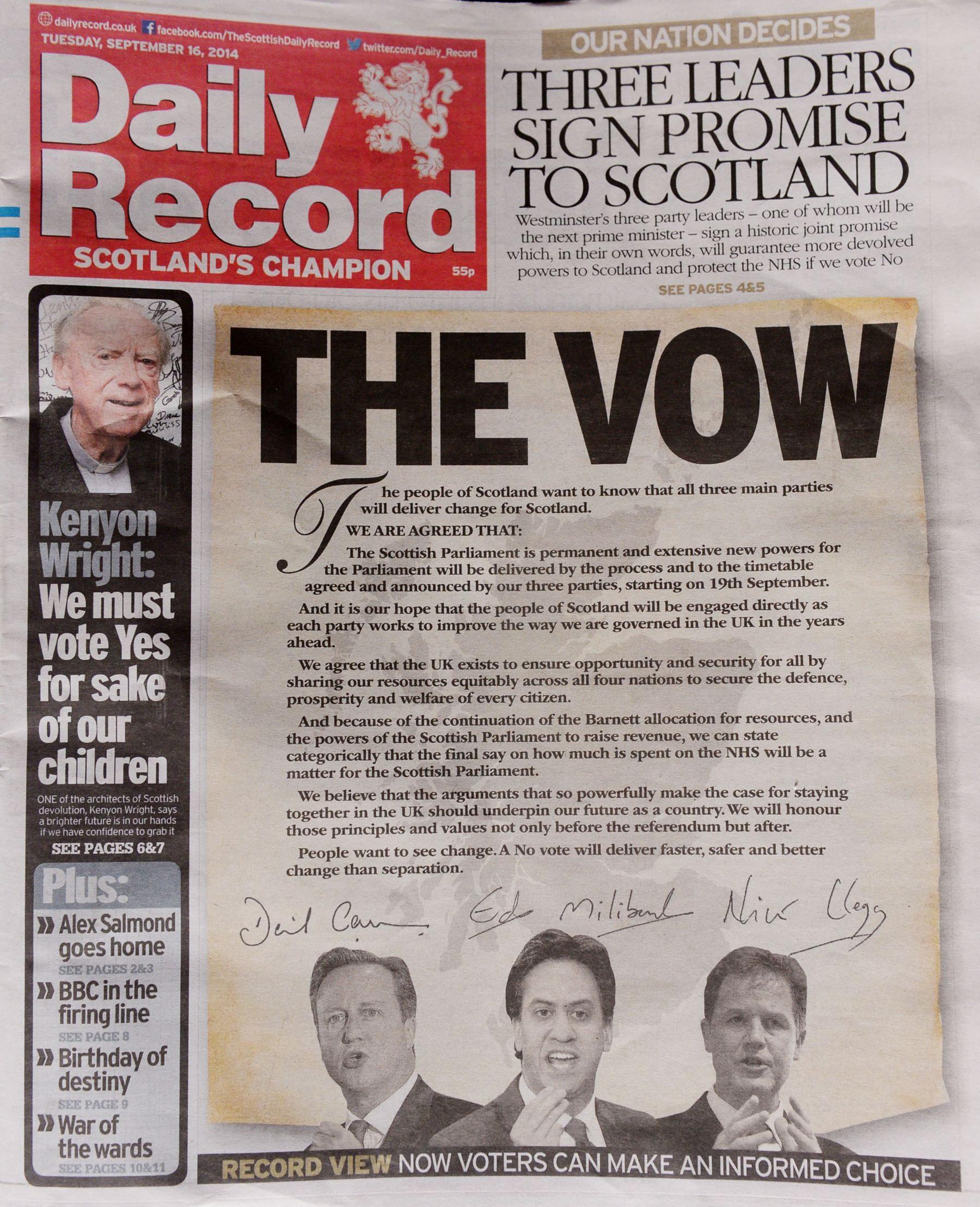SNP chief executive Murray Foote to stand down

Murray Foote (left) with SNP Westminster leader Stephen Flynn, became the party's chief executive in August 2023
- Published
The SNP's chief executive is quitting the post after 14 months.
Murray Foote said that he "could not make the necessary personal commitment" to leading a reorganisation of the party after their disappointing performance in the UK general election.
SNP leader John Swinney said that Mr Foote had made a "significant contribution" to the party during his spell as chief executive.
The former Daily Record editor replaced Peter Murrell - Nicola Sturgeon's husband - in the position just over a year ago.
He took over as the party grappled with controversy relating to alleged missing donations. It saw his predecessor charged with embezzlement, and former First Minister Nicola Sturgeon questioned by police.
Mr Foote's time in charge also saw the collapse of the SNP's power-sharing agreement with the Scottish Greens at Holyrood, which led to the resignation of Humza Yousaf as first minister.
The UK general election in July then saw the SNP lose 39 seats, leaving them with just nine MPs.
'Internal re-organisation and renewal'
Mr Foote said: "The SNP has recently embarked on a substantial process of internal re-organisation and renewal to better equip it for current electoral contests and to prepare for the critical Scottish parliament elections in 2026.
“While I agree these changes are both essential and appropriate, I also recognised after a period of reflection that I could not make the necessary personal commitment to leading the delivery of these changes into 2026 and beyond.
“In the circumstances, I concluded it would be in my best interests and the best interests of the party that I step down to give my replacement the time and space to mould and develop these changes in a manner they deem appropriate."
He added that he believes John Swinney is "the right leader at the right time" for the independence movement.

Murray Foote was editor of the Daily Record when it published "The Vow" ahead of the 2014 referendum on Scottish independence
Paying tribute, Swinney said Mr Foote had made a "significant contribution" to the party.
“When I became leader of the SNP, I promised to deliver a professional, modern, dynamic election-winning organisation - and Murray’s successor will build on the work he has started," he added.
Mr Foote will stay in the role until his successor is appointed.
He was the editor in chief of the Daily Record and Sunday Mail newspapers for several years, where he was responsible for "The Vow" front page - seen as being influential in the outcome of the 2014 Scottish independence referendum.
In 2019 he took the role of head of communications and research for the SNP.
He stood down from the job in March 2023 after becoming embroiled in a row over the party's responses to media stories about membership numbers.
In August of the same year he was appointed the party's chief executive, replacing Peter Murrell - who had left the post following the same row over media numbers.

After a lengthy period of stability and electoral dominance, the SNP is now on its third leader in two years and is seeking its third chief executive over the same period.
It is not really a surprise that the party is planning a “substantial” overhaul of its back office, in light of July’s damaging general election result.
There is clearly work to be done to get the machine running smoothly again ahead of another crucial contest in 2026.
But Mr Foote had only been in the door for just over a year.
And with political and financial pressures mounting at Holyrood, this is quite a time to step away.
The question now is who will step up to one of the biggest non-elected jobs in Scottish politics.
There may be a host of freshly unemployed former MPs sizing it up, but they will be under no illusions about the scale of the task.
Rewiring any party to win a fifth successive election is no mean feat, and whoever gets the job will need to hit the ground running with 18 months to go until polls open again.
